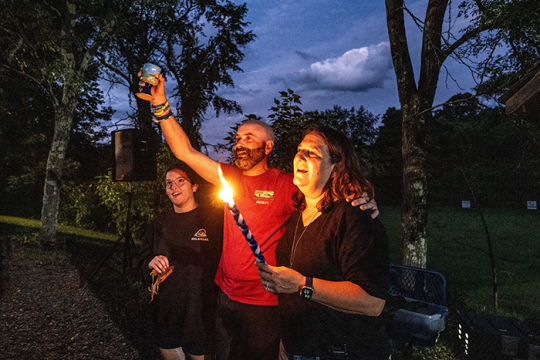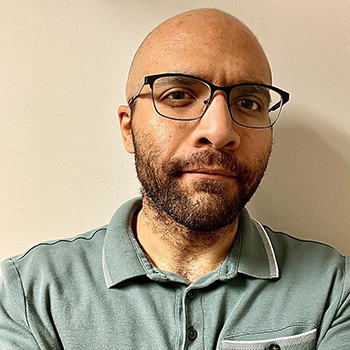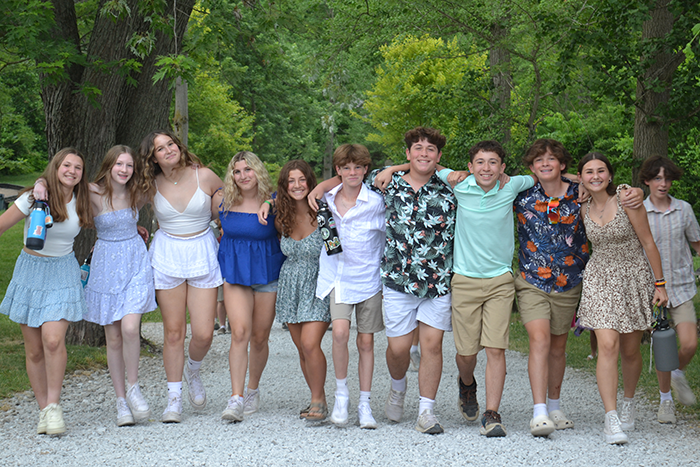
If you're Jewish, you or someone you know has most likely attended summer camp as a child. Jewish summer camps provide children the opportunity to immerse themselves in Jewish culture, engage in ritual and education, challenge themselves physically and spiritually, and prepare to be leaders in and out of the Jewish community. But what is the legacy of Jewish summer camps and how are they honoring their history while adapting to the needs of today's youth?
The Jewish summer camp movement started in the late 19th century, stemming from a need to provide Jewish children with a space and opportunity to learn about and express their heritage in a supportive environment. The first URJ summer camp, Olin-Sang Ruby Union Institute (OSRUI) was founded in 1952 in Oconomowoc, WI and established the standard for future camps by offering children common summer camp activities alongside opportunities to learn about their heritage, worship Jewishly, and grow as future leaders. OSRUI's success inspired the creation of more summer camps across the U.S. and Canada, giving thousands of children the chance to explore their Jewish identities in fun and immersive settings.
Over the past decades, Jewish summer camps have evolved to meet the ever-changing needs of the community. In addition to providing a fun and educational environment, camps have expanded their mission to include fostering personal growth, social responsibility, and leadership skills. Today, the Union for Reform Judaism runs 14 overnight summer camps, across North America, including specialized programs in the arts, sports, and S.T.E.M. fields rooted in Jewish values. This holistic approach ensures that campers receive a well-rounded experience that strengthens their Jewish identities, nurtures their talents, and prepares them for future leadership roles both within and outside the community.
Jay Rapoport, the director of URJ 6 Points Creative Arts Academy (CAA), explains that the URJ's specialty camps are "the living intersection of camping, Judaism, and personal passions." He continues, "CAA is a place where participants can find their people, artistic voices, and souls."
Over the years, Jewish summer camp has helped many Jewish children not only learn more about their heritage but take pride in it. Through Hebrew lessons, Shabbat celebrations, Jewish history discussions, and activities rooted in Jewish values, campers explore what Judaism means to them. This strengthens their own Jewish identity while fostering a sense of belonging in the larger Jewish community.
URJ President Rabbi Rick Jacobs has shared how his experience as a camper at URJ camps influenced his life:
"If it hadn't been for my own experience at URJ camps, I would not have made Judaism the cornerstone of my life. That's where prayer and Shabbat first came alive and where I began to nurture my lifelong commitment to social justice."
In addition to Jewish education and finding pride in their identity, campers also learn about teamwork, communication, and empathy in diverse environments. Kids with many intersecting identities such as Jews of Color, Jews from interfaith backgrounds, various economic backgrounds, campers with disabilities, LGBTQ+, and more can share and learn from each other's lived experiences.
Summer camp creates a space where children can learn more about (repairing the world) and encourages campers to live out their Judaism through acts of service. One example of this is URJ Camp Coleman's observance of Camp Kindness Day, during which they acknowledged the big and small acts of kindness that contribute to their camp community. Another example of camps living their values is URJ Camp Newman's Family Fun Day, which took place in March and was aimed at giving individuals with disabilities and their families a day filled with accessible, sensory-friendly camp activities.
Jewish summer camp gives children the chance to foster deep connections and create bonds that last well beyond summer. Kids are provided with an environment where shared experiences rooted in Judaism create deep, lasting friendships. The daily activities, collaborative projects, and joyous celebrations give many opportunities for campers to connect on a personal level. Friendships formed at camp become a central part of campers' lives, and many return to serve as staff members, strengthening their ties to the camp community while guiding the next generation of Jewish leaders.
Leah Jacobson is one of those campers who returned to camp as a counselor. Jacobson credits her time at Goldman Union Camp Institute with helping her learn about herself, others, and Judaism. She says, "I don't believe I would have the same connection to my religion as I do now if it weren't for my time at Jewish summer camp!"
Camp also serves as a respite that allows Jewish children a break from antisemitism. In an era when antisemitism is once again on the rise, Jewish camps teach children why it's important to be proud of their heritage and how to counter antisemitism when they do experience it.
Jewish summer camps are much more than an escape from everyday life; they are vital institutions that enrich Jewish identity and nurture personal growth. Rooted in a desire to help kids learn and grow while instilling Jewish values, camp allows young people to develop self-confidence, learn essential life skills, and develop friendships that can last a lifetime. As they continue to change and adapt to newer generations, Jewish summer camps remain an important facet of Jewish life, forging the future of the Jewish community one child at a time.
To learn more about the URJ's network of summer camps and programs, visit our Jewish Summer Camp page.
Related Posts
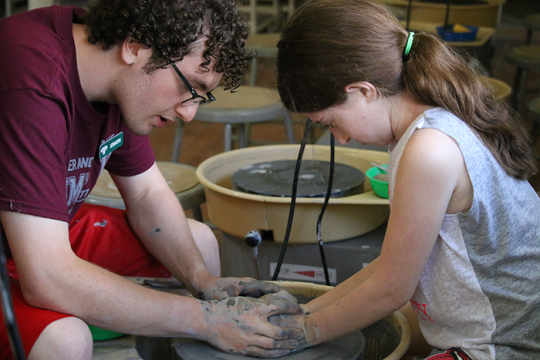
Embracing Jewish Identity, Learning to Lead: The Lifelong Benefits of Working at Summer Camp
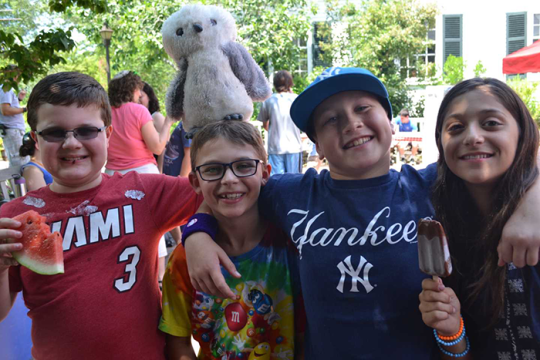
Specialized Programs Cater to Campers’ Interests
